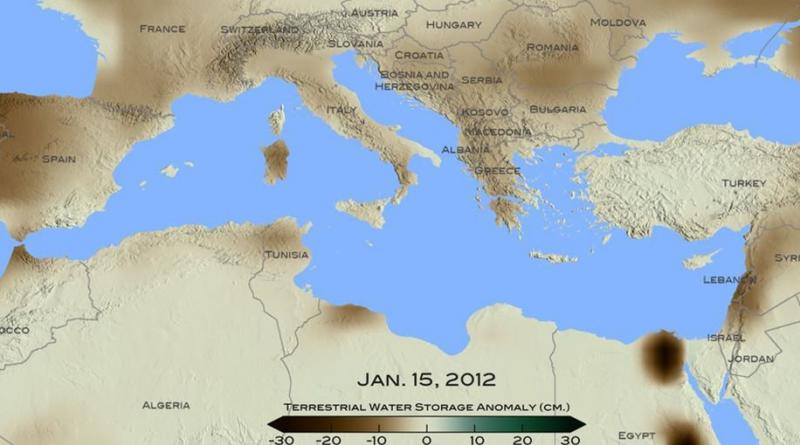Study: Mediterranean Basin to warm faster, face drought.

An MIT study explains why the Mediterranean Basin will be arider with the rising temperatures, which is expected to cause increased rainfalls in other parts of the world.
The Mediterranean Basin is one of the most sensitive regions of the world against global climate change. An increase of 2 degrees Celsius will cause unexpected weather events, heat waves, an increase in the number and impact of forest fires, drought and therefore loss of biodiversity, decrease in tourism revenues, loss of agricultural yields and drought in the region.
According to a Massachusetts Institute of Technology (MIT) study published in the Journal of Climate, the Mediterranean will be arider than other regions over the next decade and will receive 40 percent precipitation below its potential even in the winter.
Different global circulation models foresee an increase in rainfall with higher temperatures as warmer air can carry more vapor, but not in the Mediterranean, which the researchers, Alexandre Tuel and Elfatih Eltahirsay is "a major exception."
This is because of two reasons, according to the study. The first effect is a phenomenon related to powerful high-altitude winds called the "midlatitude jet stream," which drive a strong, steady west-to-east weather pattern across Europe, Asia, and North America.
Tuel said the models showed that "one of the robust things that happen with climate change is that as you increase the global temperature, you're going to increase the strength of these mid-latitude jets."
The second cause is the reduction of the temperature difference between land and sea, the researchers said. That difference, which helps to drive winds, will also be greatly reduced by climate change because the land is warming up much faster than the seas.
"What's really different about the Mediterranean compared to other regions is the geography," Tuel said. "Basically, you have a big sea enclosed by continents, which doesn't really occur anywhere else in the world."
While models show the surrounding landmasses warming by 3 to 4 degrees Celsius over the coming century, the sea itself will only warm by about 2 degrees or so. "Basically, the difference between the water and the land becomes smaller with time," he noted.
That trend is not just a projection but has already become apparent in recent climate trends across the Middle East and western North Africa, according to the researchers. "These are areas where we already detect declines in precipitation," Eltahir said. It's possible that these rainfall declines in an already parched region may even have contributed to the political unrest in the region, he noted. (HA/VK)
7 August 2020
english bianet




